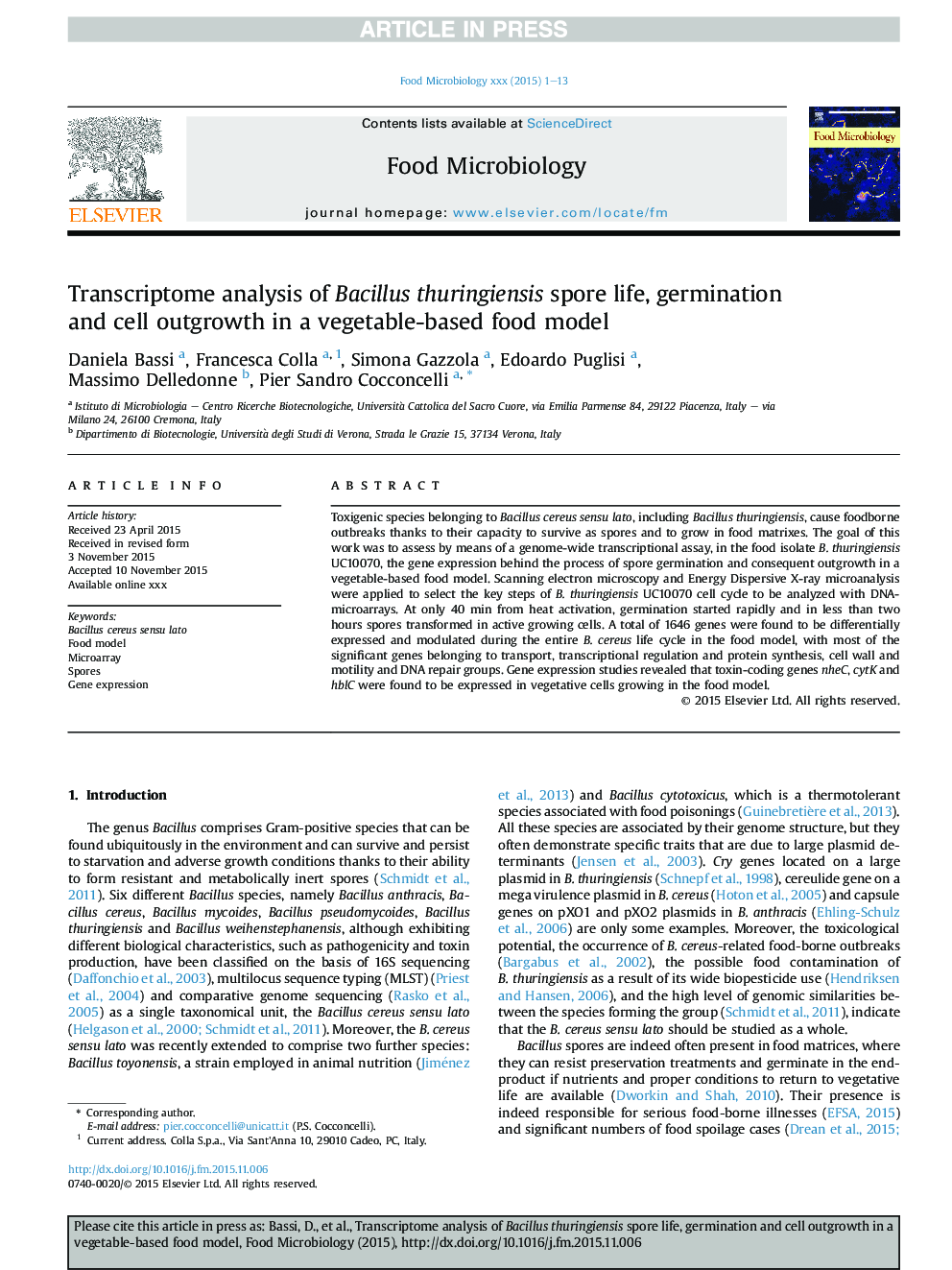| Article ID | Journal | Published Year | Pages | File Type |
|---|---|---|---|---|
| 6288418 | Food Microbiology | 2016 | 13 Pages |
Abstract
Toxigenic species belonging to Bacillus cereus sensu lato, including Bacillus thuringiensis, cause foodborne outbreaks thanks to their capacity to survive as spores and to grow in food matrixes. The goal of this work was to assess by means of a genome-wide transcriptional assay, in the food isolate B. thuringiensis UC10070, the gene expression behind the process of spore germination and consequent outgrowth in a vegetable-based food model. Scanning electron microscopy and Energy Dispersive X-ray microanalysis were applied to select the key steps of B. thuringiensis UC10070 cell cycle to be analyzed with DNA-microarrays. At only 40 min from heat activation, germination started rapidly and in less than two hours spores transformed in active growing cells. A total of 1646 genes were found to be differentially expressed and modulated during the entire B. cereus life cycle in the food model, with most of the significant genes belonging to transport, transcriptional regulation and protein synthesis, cell wall and motility and DNA repair groups. Gene expression studies revealed that toxin-coding genes nheC, cytK and hblC were found to be expressed in vegetative cells growing in the food model.
Related Topics
Life Sciences
Agricultural and Biological Sciences
Food Science
Authors
Daniela Bassi, Francesca Colla, Simona Gazzola, Edoardo Puglisi, Massimo Delledonne, Pier Sandro Cocconcelli,
